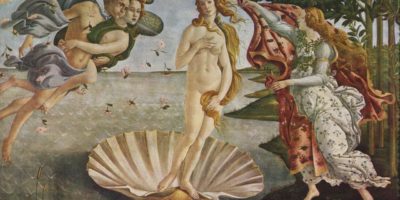Top 25 Best Books Every Political Junkie Should Read To Understand The World We’re Living In
Policy wonks call it a complex web. Politics it is. The Power Broker authored by Robert Caro is a testament to this phrase. Caro pens the biography of one of New York City’s all-time political figures, Robert Moses. With great influence, Moses was an emperor and build an empire in NYC yet he was never in any elected position.
Furthermore, he changed the infrastructure of the city and is credited with overseeing most of the city’s public works for over four decades. Though the press finally stripped him of his reputation and Nelson Rockefeller took over power from him, his mission was accomplished.
These books for political junkies will provide you with an understanding of the world we’re living in. Whether you are a political enthusiast, patriotic citizen, or curious about the global political environment, below are historical and contemporary picks for you. Take a look.
Here are the top 25 Best Books Every Political Junkie Should Read To Understand The World We’re Living In.
1. The Prince by Niccolo Machiavelli

Digitalmischief, CC BY 3.0, via Wikimedia Commons
The diplomat and political theorist, Machiavelli penned this political treatise in the 16th century. It was originally published in 1532. It speaks to the new princes and royals who intend to build strong empires during their leadership.
Moreover, The Prince is a guide to rulers seeking success in their regimes. The values pointed out in the book emphasize that effective rulers have mastered and have great skill in the art of war. Further, their actions are based on the end justifies the means.
Subsequently, they sometimes act cruelly or shadow their good side to preserve the state. Thus a ruler masks their intention, is consistent, and can act against societal norms such as religion, mercy, humanity, honesty, and more to deliver effective leadership. Hence a ruler who is a cunning tyrant may mask such traits though controversial but aimed at safeguarding his state.
Discover Famous Political Scientists.
2. The Power Broker by Robert Caro
This 1975 Pulitzer Prize winner is an autobiography of Robert Moses written by author Robert Caro. Moses is one of the most influential New York City political figures of all time. Though he was never in an elected position, he affected the affairs of NYC, especially those related to construction.
Additionally, he steered the establishment of many highways and bridges in New York. Thus his biography is a classic piece for city planners and politicians in the United States.
What’s more, The Power Broker unfolds the raw details of American politics in narrating the life of Robert Moses. It also sheds light on the situation in America’s City Halls and Statehouses. Further, it gives sneak peeks into the lives of political figures such as Franklin D. Roosevelt, Alfred E. Smith, Nelson Rockefeller, and others.
3. The Republic by Plato

Author PlatoTranslator Benjamin Jowett, Public domain, via Wikimedia Commons
It is one of the world’s leading ancient works of philosophy, and intellectual as well as historical political theory. Plato is credited with this work around 375 BCE. In the book, Plato addresses issues of justice. He centers on the character of a just city or state, its order, and the place of the just individuals in it.
4. The Fifth Risk by Michael Lewis
A 2018 masterpiece that opens the readers’ eyes to the Donald Trump administration. Especially the transition and political appointments. The book unveils the situation in some of the most crucial federal agencies such as the Department of Agriculture, Energy, and Commerce.
Furthermore, the book highlights the plight of willful ignorance by politicians which results in quick fixes and downplays long-term solutions to problems. For instance, underfunded food stamps and school lunches.
Also, insufficient labor force for important programs like the Census or the protection of natural resources like uranium. Lewis also honors the linchpins in public service who are little celebrated but are driven by the best interest of the people.
Find out the Fundamental Philosophy Books To Understand the World.
5. The Federalist Papers

Publius (pseudonym) [Alexander Hamilton, John Jay, James Madison]., Public domain, via Wikimedia Commons
The collection was first published in 1788. Yet around 1787, the essays had made it to New York’s media print. The trio at the time was published under the pseudonym “Publius”.
The book focuses on differentiating the roles of each of the arms of government and their power. It also explores checks and balances by the legislature, the importance of the independence of the judiciary, and more.
6. The Righteous Mind
It is the view of the social psychologist, Jonathan Haidt analyzing the relationship between human morality, politics, and religion. Thus, he begins by establishing that most decisions are made based on gut feelings rather than reason because of the influence of people’s beliefs.
Over and above that, he explains that the human mind is organized in a distinct way on how to respond to moral concerns. In the end, Haidt provokes the thought that humans have an innate capacity inclined to associate with a group. Hence it overpowers the aspect of selfish interest.
7. The Communist Manifesto by Marx and Engels

Eldona Fako Kooperativa de SAT, Public domain, via Wikimedia Commons
The German philosophers Karl Marx and Friedrich Engels are credited with this document. It began as the Manifesto of the Communist Party but later became the reference for communist revolutions across the globe.
Marx and Engels in their document argue that private property ownership and the right to inheritance should be abolished. Hence pave way for a classless and stateless society. They also champion a system of heavy taxation. The Communist Manifesto was first published in 1848. It was added to UNESCO’s Memory of the World Programme in 2013.
8. The Shock Doctrine
It is a 2007 release written by Canadian author Naomi Klein. She uncovers the neoliberal free market ideology which is promoted by the American economist Milton Friedman.
Klein introduces the reader to the “shock therapy” system where the political class capitalizes on natural crises. So they use such times to establish and propel controversial policies. She explains that during disaster moments the public is in shock and distracted. So they can hardly effectively resist any changes at such times.
9. The Road to Serfdom

Routledge Press (UK), Public domain, via Wikimedia Commons
Renowned economist cum philosopher Friedrich Hayek published his book in 1944. It warns against empowering a central government with economic control which in turn may encourage tyrant leadership.
10. The Anatomy of Fascism by Paxton
This is a 2004 historical analysis that seeks to inform readers about fascism. The author, Robert O. Paxton examines the actions of fascists rather than only depending on their words. His case study examples are Fascist Italy and Nazi Germany. Paxton also provokes critical thinking in the reader. He answers why fascism ruled in some countries and why it emerged during the era it did.
11. The Audacity of Hope by Obama

Pete Souza, Public domain, via Wikimedia Commons
Barack Obama in this book shares his view on the restoration of the American Dream. He inspires his audience to overcome differences of opinion, and bureaucracies that encourage division by calling for Congressional alliances.
On top of that, he puts forward the place of America in the world and provides a glimpse into his personal and political life. He then speaks of hope for the American future. The book was published in 2006.
12. The Guns of August
Barbara Tuchman goes into the events of World War I. She tells the story of the early events of the conflict, the participants as well as the plans, and strategies involved.
Furthermore, she diverts into the world events, and the sentiments shared across the globe before and during the war. The book was published in 1962 and secured a 1963 Pulitzer Prize.
Check out Best Books on World War I.
13. The Art of War by Sun Tzu

Kallemax, Public domain, via Wikimedia Commons
This book is a motivation for Military and political leaders. Sun provides insights into the strategy and tactics used by the Chinese military around the 5th century BC.
To add on, The Art of War details everything from weapons used at the time, and environmental conditions favorable for wars. It also describes the strategy to use to reward and discipline militants. Tzu also touches on carrying out effective intelligence and espionage operations.
14. The Death of Expertise by Tom Nichols
Nichols shares his view on the rising forces that appear to intimidate the authority of experts. He accuses factors such as the internet, education, and media freedom that support anti-expertise sentiments. In the end, he suggests that experts exist to rectify each other in society in case one of their own makes errors.
15. Politics by Aristotle

Medpro, Public domain, via Wikimedia Commons
This acclaimed Greek philosopher penned Politics around the 4th century BC. The book is divided into eight parts (books)which are further divided into chapters.
Aristotle defines politics or what he calls polis or political associations in the first book. He goes on to explain the types of regimes in the second book. In his third book, he touches on citizenship and showcases political theory in the fourth book. Additionally, he discusses constitutional matters in the fifth and sixth volumes and describes the factors of an ideal state in the seventh and eighth books.
16. The Price of Politics
Bob Woodward in his 2012 book, gives the ins and outs of the fiscal reality of the federal government during President Obama’s regime. The book deeply analyses the efforts of Obama and top Republican and Democratic congressmen in a bid to restore the American economy in a span of fewer than four years.
17. The Trial

Community Helper Shqip, CC BY-SA 4.0, via Wikimedia Commons
Franz Kafka recorded his thoughts on this novel from 1914 to 1915. Yet its publishing happened posthumously about 10 years later in 1925. The key character is called Josef K. who finds himself arrested and goes through prosecution. Yet his crime remains unknown to him and the reader too. According to the French newspaper, Le Monde’s 100 Books of the Century ranking, The Trial made it to the top ten of German reads of the 20th century.
18. The Future of Freedom
In this 2003 book, Fareed Zakaria speaks on the variables that propel liberal democracy to thrive. He also contrasts the advantages and disadvantages of using democracy rather than liberty to build the foundation of a stable society.
See the Must-Read World War II Books to Understand What Happened.
19. The Influence of Sea Power Upon History

Alfred Thayer Mahan, Public domain, via Wikimedia Commons
It is a masterpiece in naval strategy in which Alfred Thayer Mahan issues policies that have been embraced by major navies. It’s a hands-on guide by Mahan who was a naval officer. He emphasizes the importance of sea power in the 17th and 18th centuries.
On top of that, he explains the factors that lead to triumphant sea power. Stressing on the aspect of the increase in the number of fleets while ensuring high strength of the same.
20. Dowd’s book The Year of Voting Dangerously
Maureen Dowd is celebrated for her wry humor and in her 2016 book, she explores the 2016 US presidential elections events. She delves into the lives of both candidates at the time Donald Trump and Hillary Clinton.
21. Fukuyama’s book The End of History and the Last Man

See page for author, Public domain, via Wikimedia Commons
Francis Fukuyama is a celebrated economist who doubles as a political philosopher. His 1992 work is an expression of his ideology that liberal democracy is the end of the human search for an ideal form of governance.
He explores possible solutions to the problems facing the US and the world at large. He draws inspiration from his firsthand experience in federal government positions during the Reagan as well as Clinton administrations.
22. The Looming Tower by Lawrence Wright
This Pulitzer Prize-winning book is an in-depth historical perspective that unpacks the events that led to the 9/11 attacks. It details the history and rise of al-Qaeda and the motivation and belief system of its leaders and followers.
Moreover, Wright uncovers the intelligence loopholes that resulted in the September 11 invasion that brought down the World Trade Center. It was published in 2006.
23. Theodore’s book series The Making of the President

See page for author, Public domain, via Wikimedia Commons
Theodore H. White merges the dramatic sense and historical significance of the US presidential elections from 1960 up to 1972. The first book is The Making of the President 1960 which paints the picture of the 1960 election which John F. Kennedy won.
To add on, the 1968 sequel of the book is a political landmark that addresses the election of Richard Nixon. Further, it looks into the Robert F. Kennedy assassination. Also, dares investigate the Martin Luther King, Jr. assassination. The four-volume book series talks about the presidential elections of 1960, 1964, 1968, and 1972.
Learn about 10 Things to Know About Political Scientists.
24. The Ideological Origins of the American Revolution by Bernard Bailyn
The 1967 Pulitzer Prize winner is a book that presents to the reader the issues surrounding the American Revolution. Bailyn puts forward the idea of the corruption of politics which causes an imbalance of power vs. liberty in governments.
25. The Social Contract by Jean-Jacques Rousseau

DutchTreat, CC BY-SA 3.0, via Wikimedia Commons
Rousseau in his 1762 masterpiece begins by expressing the limited freedom of man. He alludes that though humans are born free, they are chained by different aspects such as society, the state, and more throughout life.
Subsequently, he offers his opinion that for man to enjoy being free, he ought to be under obligation. Thus, suggesting that independence is achieved by depending on the law.
These top 25 books for political junkies are eye-openers to the complex political web. They broaden your understanding of the world were living in. They offer insights into the global political systems, the driving force of political actors, and the ripple effects of decisions that in the end shape our world.
Planning a trip to Paris ? Get ready !
These are Amazon’s best-selling travel products that you may need for coming to Paris.
Bookstore
- The best travel book : Rick Steves – Paris 2023 – Learn more here
- Fodor’s Paris 2024 – Learn more here
Travel Gear
- Venture Pal Lightweight Backpack – Learn more here
- Samsonite Winfield 2 28″ Luggage – Learn more here
- Swig Savvy’s Stainless Steel Insulated Water Bottle – Learn more here
Check Amazon’s best-seller list for the most popular travel accessories. We sometimes read this list just to find out what new travel products people are buying.









